Nano One Materials (NANO) - Scaling Up Cathode Production in Canada
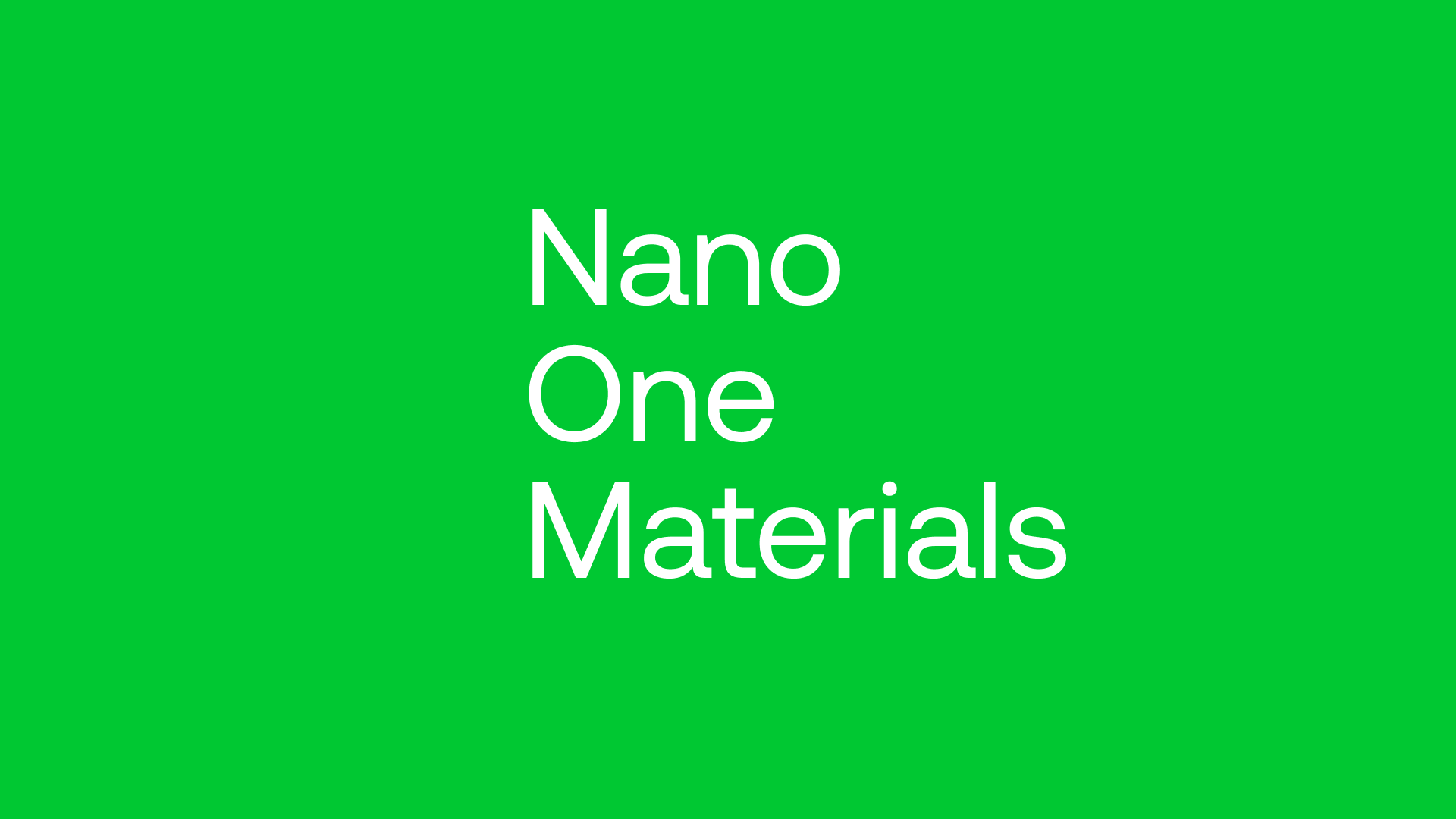
Interview with Dan Blondal, CEO of Nano One Materials
Nano One® is a technology company with a patented and scalable industrial process for the production of low cost, high performance cathode powders used in lithium-ion batteries. These unique materials are being designed to add value to electric vehicles and grid storage batteries in the global push for a zero-emission future.
Nano One is a Canadian technology company that is at the forefront of developing technology to improve the way lithium-ion battery cathode materials are made. In a recent interview with Crux Investor, the company disclosed some exciting developments. Nano One has manufacturing facilities in Burnaby and has recently acquired a manufacturing facility in Quebec. The company has strategic partnerships with Rio Tinto, BASF, and Yumicore.
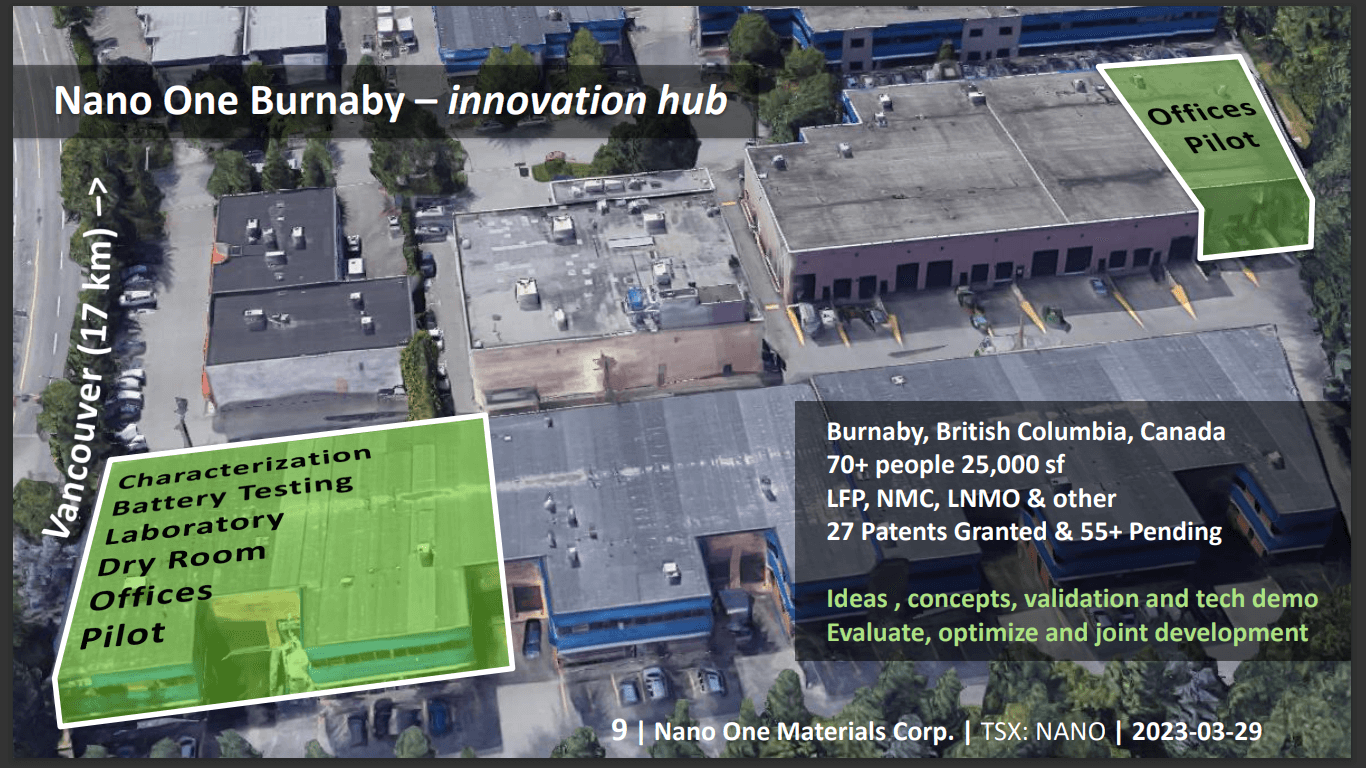
Acquisition of Johnson Matthey Manufacturing Facility in Quebec
Nano One acquired the Candiac facility in Quebec to produce lithium-ion phosphate (LFP) cathode. The acquisition included all the necessary equipment for Nano One's one-pot process. The staff at the facility has an average of 10+ years of experience in cathode manufacturing. Nano One is retrofitting the plant to produce 200 tons per annum of cathode using their one-pot process. New reactors are being installed to replace the existing ones that are not chemically compatible with Nano One's process.

LFP Powder Manufacturing Process
The process to make lithium-ion phosphate powder involves adding lithium, iron, and phosphorus sources to a stirred tank, drying the resulting slurry, and then firing it in a furnace. The slurry is dried in a spray dryer, and the resulting dry dust is put into a kiln and fired at an elevated temperature to finalize the crystal structure. The powder is coated with carbon in the process, making it conductive enough to work as a cathode material. The key part of the process is the intermediate drive materials and the unique form of the materials that come out of the reactor.
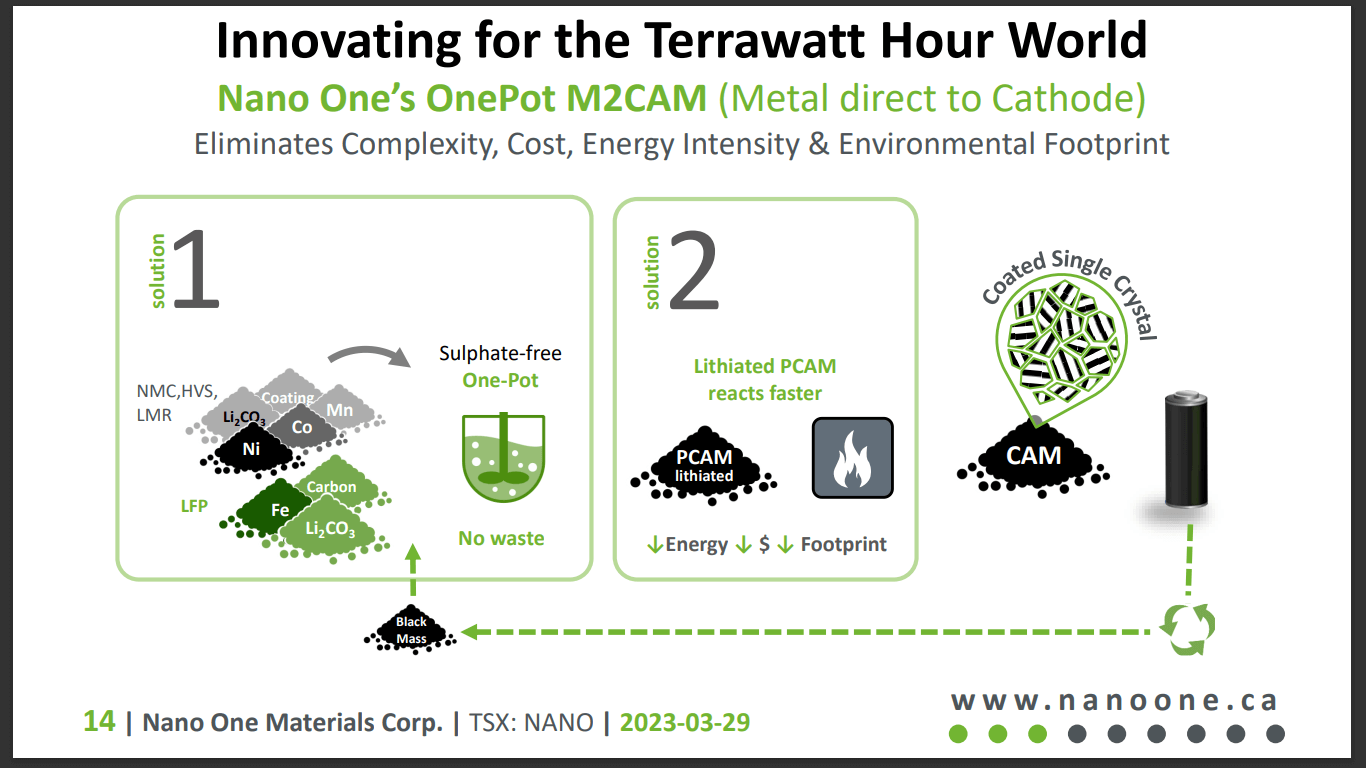
Benefits of Nano One's Process
Cathode production is a challenging part of the supply chain due to the need for purity and performance in a battery. Nano One's process offers benefits such as driving down cost, reducing environmental footprint, and making national interests more secure. The current process for making cathode materials involves many energy-intensive steps, including dissolving metals in sulfuric acid and crystallization. Nano One's process can go directly from metal powder to cathode material, skipping these steps and avoiding the sulfate waste stream and shipping of materials.
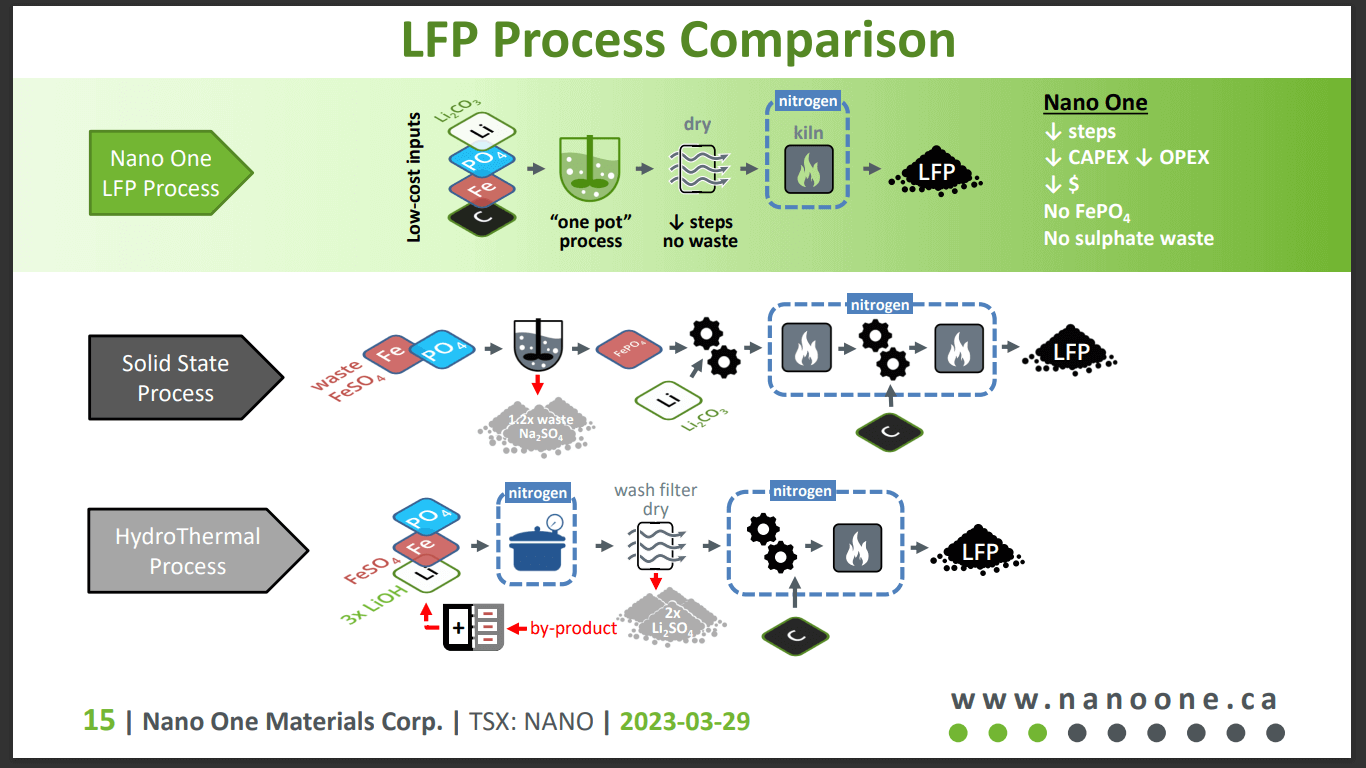
Grant for Plant Conversion and Pilot Line Building
Nano One has received a $40 million grant from Sustainable Development Technology Canada for plant conversion and nickel/manganese pilot line building in the Candiac plant. The company has already drawn down the first few million and will draw down the rest over the next three years. Nano One is actively talking to the Canadian government and strategic interests for additional funding.
Scaling Up Production
The company is trialling the one-part process and will replace some reactors with new ones in Q3. The plan is to build out the plant larger and larger, reaching 2,000 tons per year over time. The company is in deep discussions with project financiers and companies that can help finance the building of a much larger production facility. The company aims to bring more strategic partners to the table and build relationships with the OEM market. The anode material used for testing cells is typically lithium for short-term tests and graphite for longer-term tests.
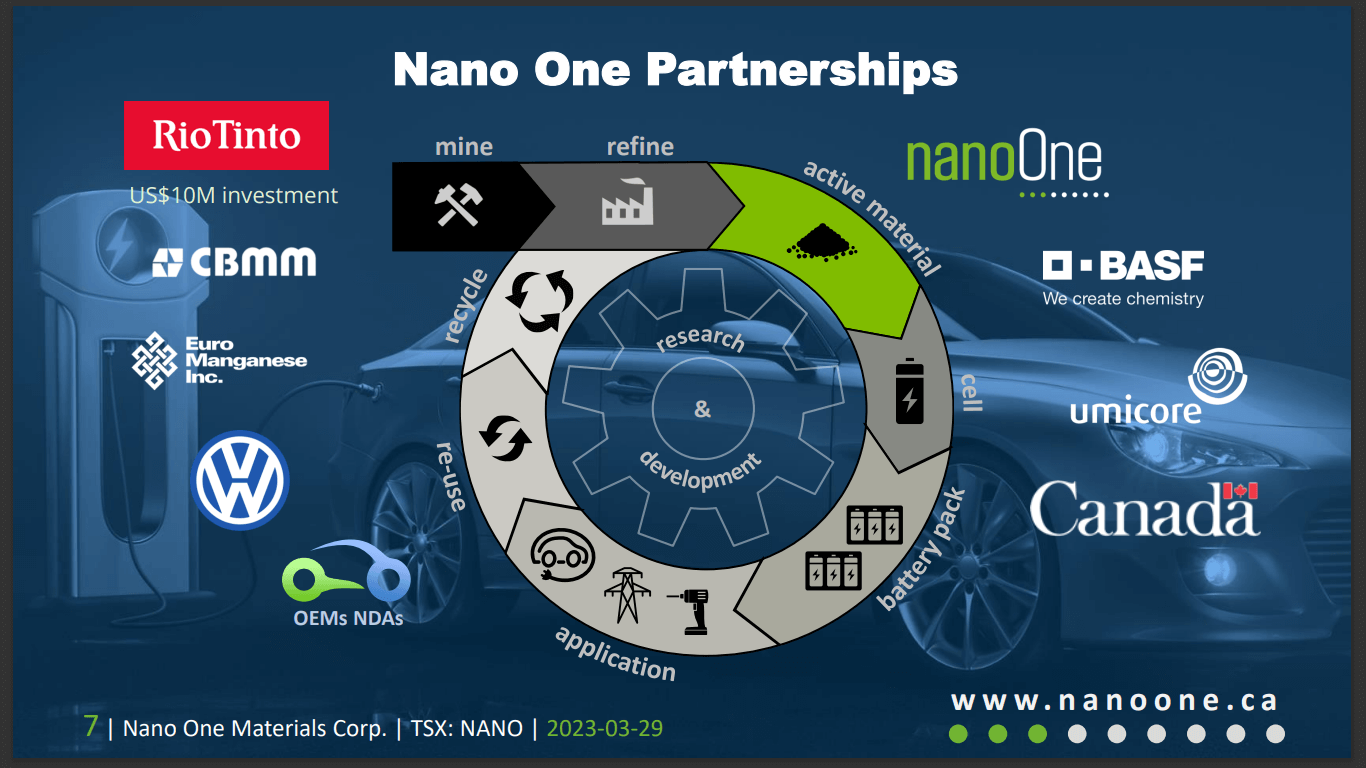
Solid-State Battery Technology
Nano One's technology can be licensed to other companies in the space. Solid-state battery technology has the potential to change the way the world makes cathode materials. Capital materials will work effectively with any kind of anode. A concrete and practical path to scale up and production is necessary.
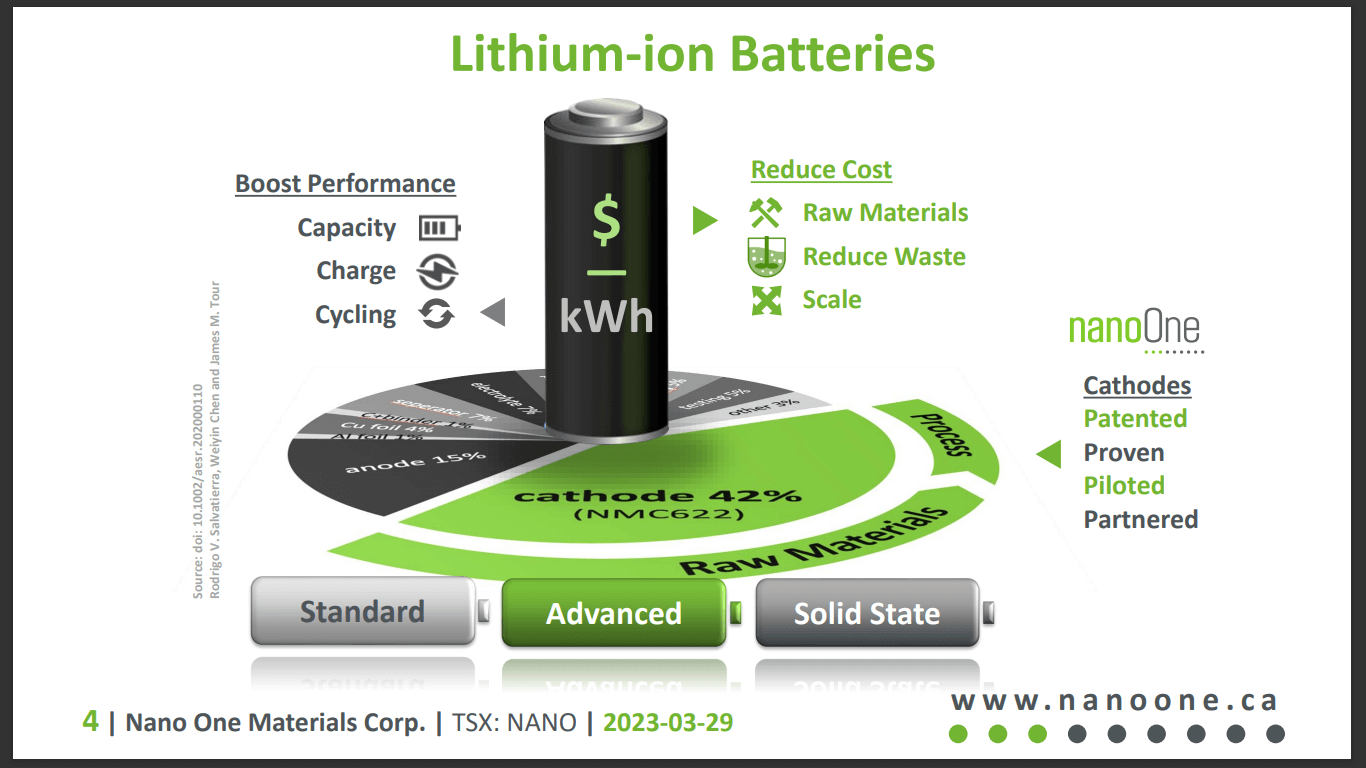
Nano One is a company to watch in the lithium-ion battery space. With strategic partnerships with Rio Tinto, BASF, and Yumicore and a unique one-pot process for manufacturing cathode materials, the company is poised for growth. The recent grant from Sustainable Development Technology Canada is also a significant endorsement of Nano One's technology.
To find out more, go to the Nano OneMaterials website
Analyst's Notes




Subscribe to Our Channel
Stay Informed











